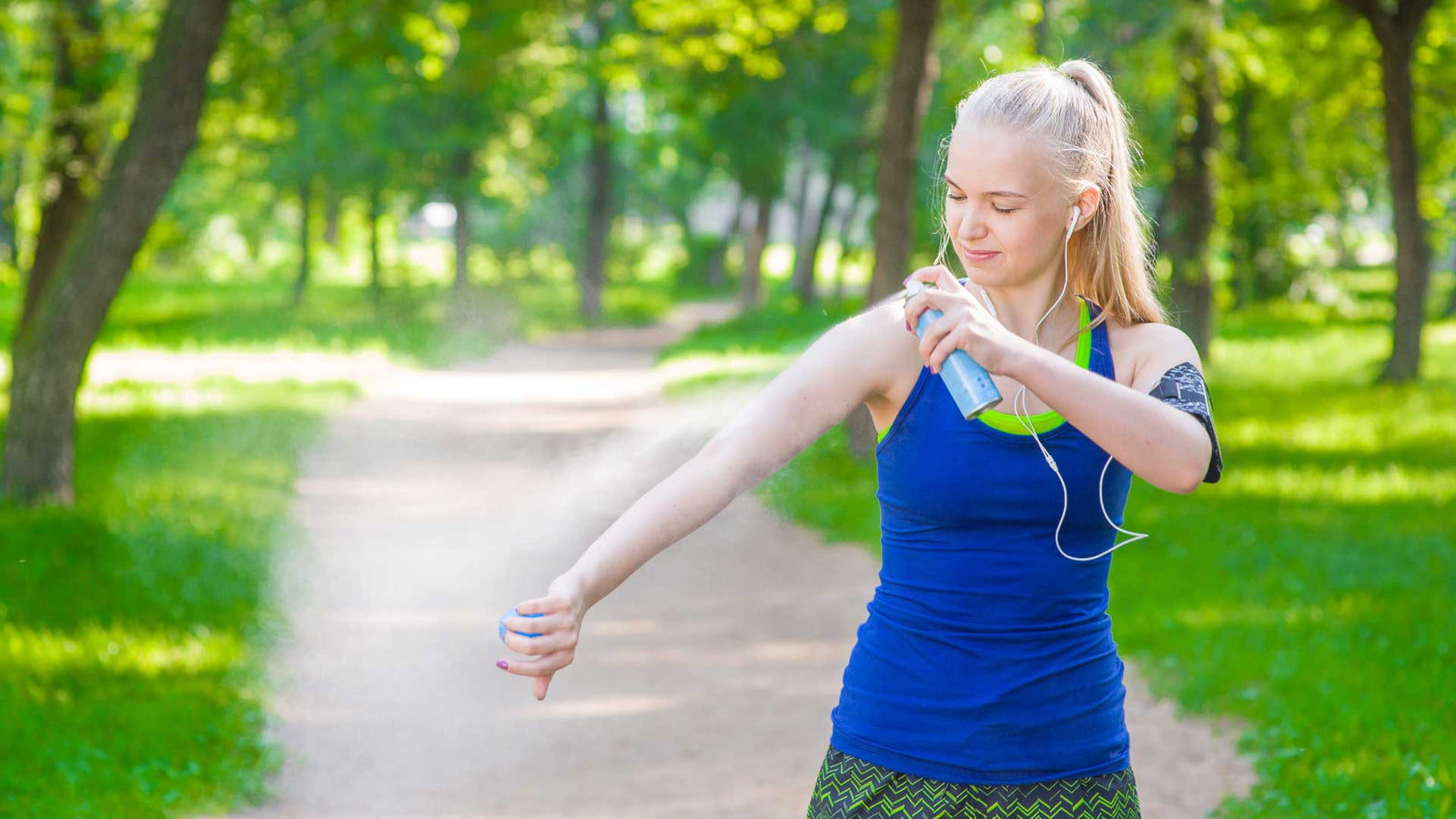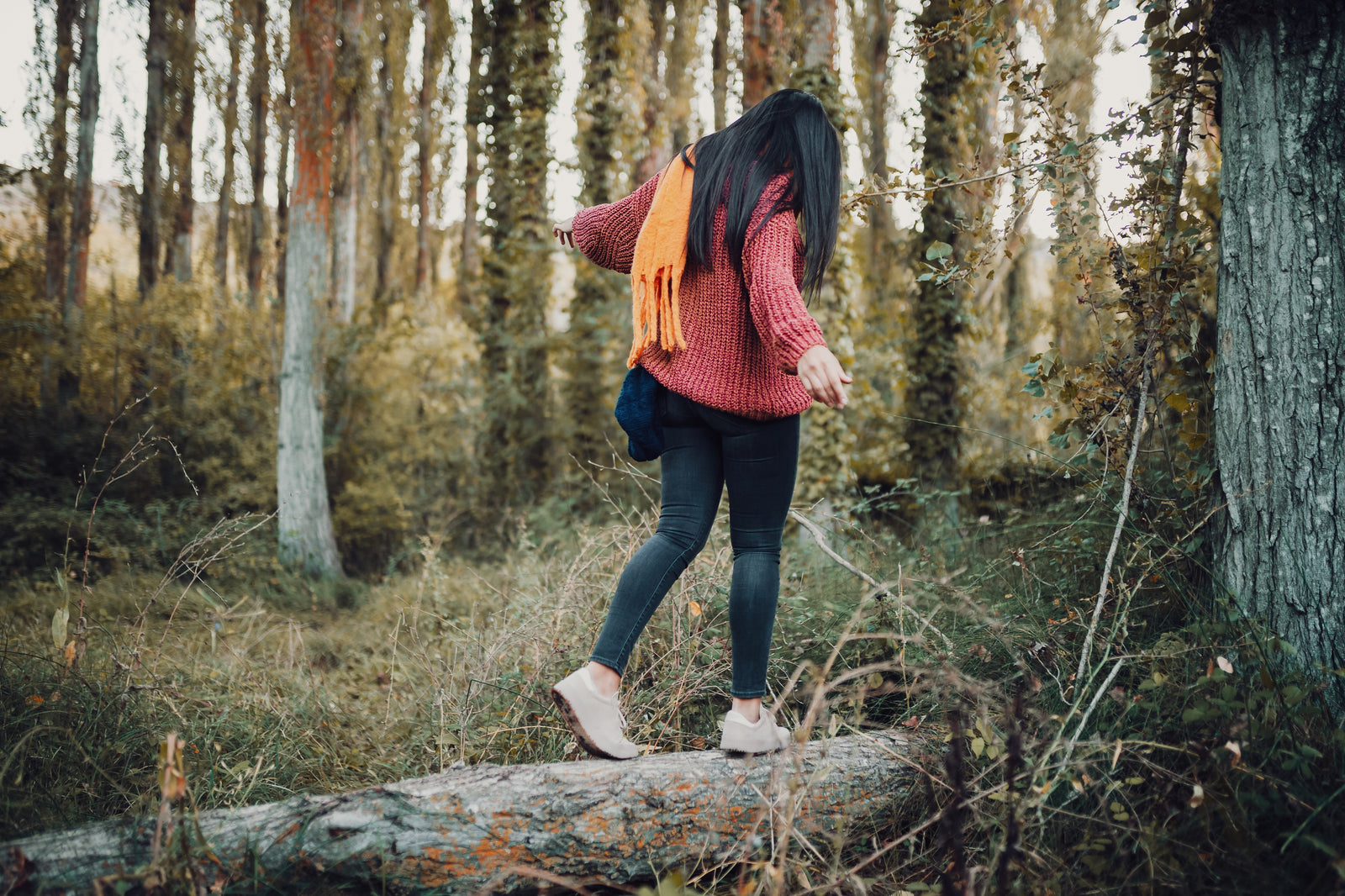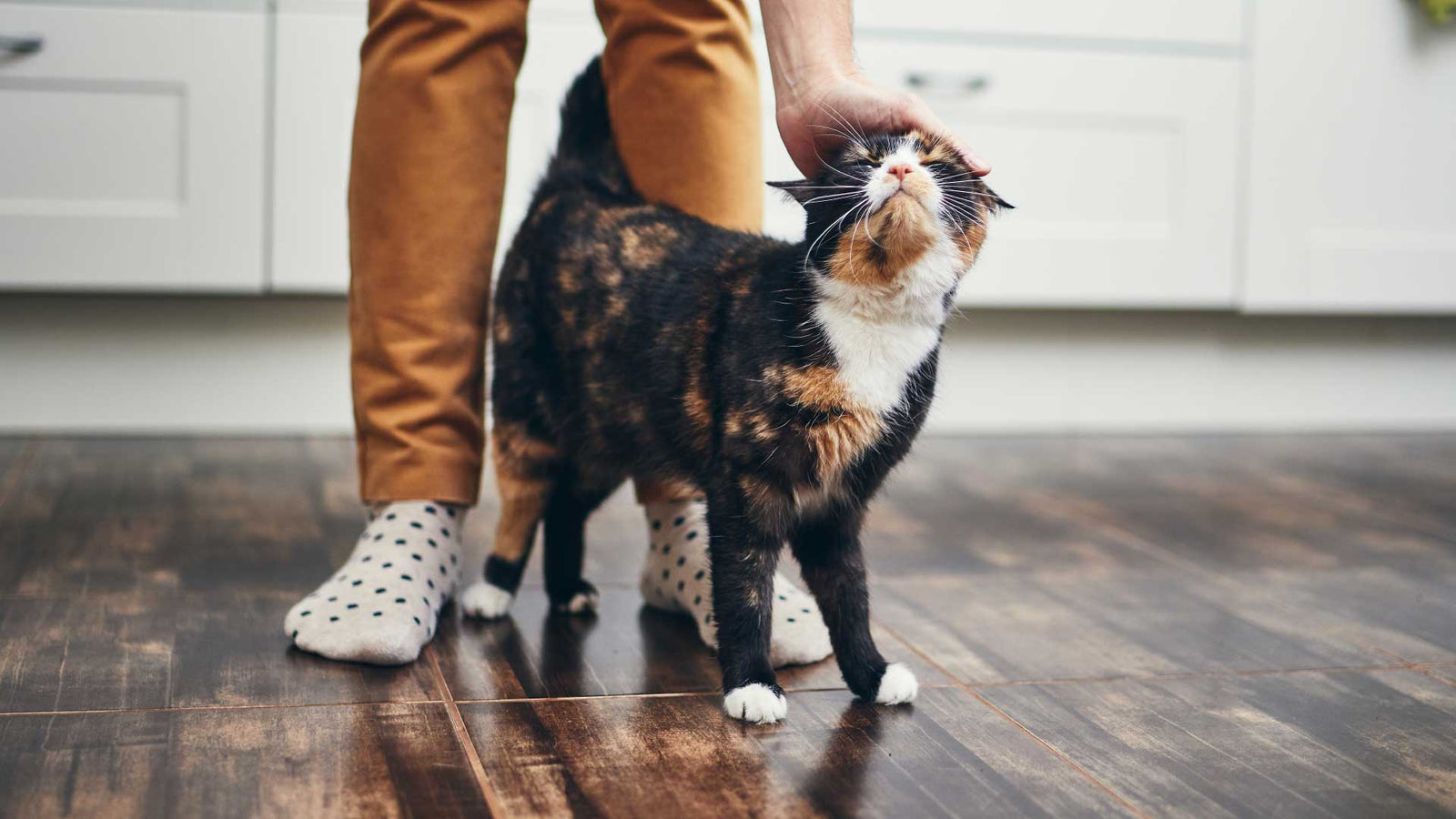Jump to section
How to minimise the symptoms of hay fever
Madeehah Reza, Pharmacist, MPharm | Jul 7, 2022

Got watery eyes and an itchy nose as soon as you step out of the house? Can’t enjoy the summer sun? You’re not alone, as hay fever affects more than 10 million people in the UK. Hay fever can be more than an inconvenience if the symptoms disrupt your daily life.
In this guide, we’ll talk about:
- How to minimise your contact with pollen
- Know which pollen you are allergic to
- Protecting your eyes
- Protecting your nostrils
- Vacuuming regularly
- Avoiding gardening
- Quitting smoking
What is hay fever?
expand_moreHay fever occurs when you are allergic to pollen, a powder produced by plants. Some pollen allergy symptoms include watery or itchy eyes, sneezing, coughing, a runny nose or a scratchy throat. You may also get a headache or feel tired.
Pollen is not harmful, but your immune system can overreact to this allergen. You might be more sensitive to pollen than your friends or family, explaining why you might get symptoms when they don’t.
The best ways to avoid hay fever
expand_moreThere are ways you can avoid pollen to reduce hay fever symptoms. Try to learn what kind of pollen triggers your hay fever, as this will help you plan your daily activities. There are also many products available used to treat hay fever symptoms.
Minimise your contact with pollen
expand_moreIf you have a pollen allergy, you should avoid being in contact with pollen. It sounds obvious, but often pollen will be in places you may not realise. Pollen is a powder that plants make, and they need it to reproduce. Pollen can be transported by the wind and other insects or animals, including your pets.
To minimise your contact with pollen, you should try to:
- Stay indoors as much as possible, especially on windy days
- Close your windows and doors during the day
- Wash your clothes if you’ve been outside
- Shower after spending time outside
- If you need to go out, wearing a face mask can create a barrier between pollen and your mouth and nose
The pollen count will be higher in the early morning or late evening, so try to stay indoors at these times.
Plants make more pollen at certain times of the year. This can change depending on where you live in the UK. In general, the hay fever season is between March and September. Some plants produce pollen earlier or later than these times, so you may get symptoms outside of the season.
Know which pollen you are allergic to
expand_moreAs there are different types of plants, there are also various types of pollen. You may not be allergic to all of them. By knowing which kind of pollen you’re allergic to, you have a better chance of avoiding it.
The most common pollen types that cause hay fever are tree pollen, grass pollen and weed pollen. There are several tree pollen and weed pollen types, and you might not be allergic to all of them.
| Type of plant | When can the pollen affect you most? | Examples of pollen type |
|---|---|---|
| Tree | March to May |
|
| Grass | May to September | |
| Weed | June to September |
|
Tree pollen is usually released earlier in the year, from the end of March to the middle of May. Some types of tree pollen are released as early as January. If you get hay fever symptoms in March or earlier, there’s a chance you might have a tree pollen allergy. Symptoms include sneezing, an itchy nose and mouth and watery eyes. If you have asthma, your symptoms may worsen with a tree pollen allergy.
Grass pollen can affect you from the middle of May until September and is the longest-running season. Weed pollen can affect you from June to September.
You may be affected by certain types of pollen outside of their regular season. Different plants will grow in various parts of the UK, so the kind of pollen you’re exposed to will depend on where you live. Climate change can also affect the plants that grow in your area. This will affect the timing of the pollen season.
If your symptoms are severe, you can speak to your GP about getting tested for allergies; they’ll refer you to a specialist doctor called an allergist. The allergist will test you for different types of allergens, including pollen. This usually involves a skin prick test and some blood tests.
Once you know which type of pollen you’re allergic to, you can take measures to minimise your contact with it.
You can visit your nearest LloydsPharmacy and speak to a pharmacist in-store for advice on hay fever treatment.
Protect your eyes
expand_moreWraparound sunglasses can protect your eyes from the pollen in the air. These glasses create a physical barrier between the air and your eyes. You might also find these sunglasses helpful to protect your eyes from dust and wind.
If you wear contact lenses, some types of lenses might protect you against pollen. Wearing daily lenses can help reduce pollen irritation because you can change your contact lenses regularly. This might not be the case if you wear weekly or monthly contact lenses.
If you find it uncomfortable to wear contact lenses with hay fever symptoms, try not to wear them that day. It can make your eyes feel worse if you keep the lenses in.
You can also get hay fever eye drops from LloydsPharmacy. Allergy eye drops contain antihistamine ingredients that soothe itchy and watery eyes. The eye drops we offer include Opticrom, Otrivine and Optrex.
Protect your nostrils
expand_moreYou can protect your nose from pollen by applying Vaseline around your nostrils. Vaseline contains petroleum jelly, creating a barrier between the pollen and your nose. It can also trap the pollen particles before they get inside your nasal cavity.
You might already be used to wearing a face mask to protect yourself and others from COVID-19. A face mask can also help protect you from getting a runny or itchy nose from hay fever.
If your nasal symptoms are severe, you can use a nasal spray to reduce the symptoms. At LloydsPharmacy, we offer a wide variety of nasal sprays to treat hay fever, including:
- Saline nasal spray that washes pollen from your nasal passages
- Otrivine nasal spray, which contains an antihistamine medication
- Beconase hay fever relief for adults includes a steroid that reduces inflammation
You can ask a pharmacist at any LloydsPharmacy for more advice on protecting your nose from pollen.
Vacuum regularly
expand_moreVacuuming will keep your home free from pollen. Using the right kind of vacuum can make a big difference to your hay fever symptoms. Try to get a vacuum with a HEPA (high-efficiency particulate absorbing) filter. Non-HEPA filter vacuums don’t clean the air properly. The air gets sucked into the intake valve and flows straight out through the exhaust vent, meaning dust particles, pollen and pet fur can pass straight back into the air in your home.
A HEPA filter traps microscopic airborne particles by forcing the air into its filter. Once the air flows out of the vacuum, it’s much cleaner than it was at the start.
You should also make sure your vacuum has a sealed system, which keeps the dust inside in an airtight container.
Other cleaning tips to reduce hay fever symptoms include:
- Wash your bedding weekly, especially during hay fever season
- Vacuum your mattress for allergens or use a mattress protector and clean this regularly
- Dust with a damp cloth, as this will trap the pollen on the cloth
If you have pets that go outdoors, try to clean their fur before letting them back inside. Pollen can get trapped inside animal fur and into your home. Restricting the rooms your pets are allowed in will give you some pollen-free spaces in your home.
Avoid gardening on windy days
expand_moreIf you have hay fever symptoms, avoid going out into the garden when the pollen count is high. As pollen is an airborne powder, it can be carried by the wind across large distances. This is good for plants trying to reproduce but not very helpful if you suffer from hay fever.
Avoid gardening if it’s a particularly windy day. The amount of pollen in the air on a windy day can be more than usual. It’s best to stay indoors until the wind calms down.
If you’re a keen gardener, consider changing the plants in your garden to ones that spread less pollen. Swap wind-pollinated plants for insect-pollinated species. The pollen from insect-pollinated plants is usually heavier, so it can’t be carried by the wind.
Unfortunately, most grasses are pollinated by the wind. If you’re allergic to grass pollen, consider changing your green lawn into a patio to keep your home grass-free.
The Met Office’s pollen forecast is a helpful way of checking how high the pollen count is in your area. You can also check which types of pollen are likely to affect you on the day.
Don’t smoke
expand_moreSmoking damages the lining of your lungs, making your airways more sensitive to allergens. The toxins in cigarette smoke can irritate and cause inflammation in the mucous membranes of your airways.
Smoking also increases how much mucus the lining of your lungs produces. Allergens like pollen get trapped in the mucus. Due to the damage from smoking, your lungs won’t be able to clear the pollen. This can aggravate symptoms of hay fever that may overlap with breathing problems.
Quitting smoking is one of the best decisions you can make for your health. When you stop smoking, you’ll feel the benefits even within the first few hours of quitting. If you have other allergic conditions, such as asthma, it’s even more beneficial to stop smoking.
Minimising hay fever by avoiding pollen
expand_moreWhile there’s no cure for hay fever, you can take these steps to stop hay fever symptoms from getting worse. You can manage your hay fever by understanding your pollen triggers and taking the proper measures to avoid pollen.
At LloydsPharmacy, we offer a wide range of products that can help treat hay fever. These include nasal sprays, eye drops and hay fever tablets.
To learn more about allergies, rhinitis and natural treatment tips, visit our asthma and allergies advice.
References
expand_more- www.nhs.uk/conditions/hay-fever
- www.allergyuk.org/news/face-masks
- www.metoffice.gov.uk/weather/warnings-and-advice/seasonal-advice/health-wellbeing/pollen/when-is-hayfever-season
- www.kleenex.co.uk/advice/pollen/types-of-pollen
- www.kleenex.co.uk/advice/pollen/pollen-calendar
- https://link.springer.com/article/10.1007/s11882-011-0208-5







